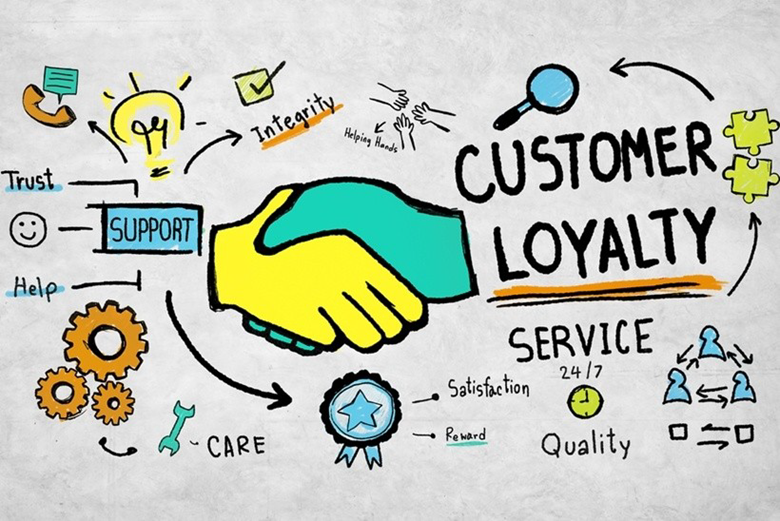Customer Loyalty
What is Customer Loyalty?

Definition:
“Customer Loyalty” refers to the degree of faithfulness and commitment a customer has toward a brand, product, or service. It signifies a customer’s preference for a particular business over its competitors, leading to repeat purchases and a long-term relationship. Loyalty is built through positive experiences, consistent satisfaction, and the perceived value a brand provides, encouraging customers to choose and stay with a specific company.
Analogy:
Think of Customer Loyalty as a strong friendship. Similar to trust, reliability, and mutual understanding in a strong friendship, customer loyalty involves a deep connection between the customer and the brand, based on positive experiences and consistent satisfaction.
Further Description:
Customer Loyalty is not just about repeat purchases; it extends to a customer’s willingness to advocate for a brand, recommend it to others, and withstand temptations to switch to competitors. It goes beyond transactional relationships, focusing on building emotional connections and delivering value that resonates with the customer’s needs and preferences.
Key Elements of Customer Loyalty:
- Consistent Positive Experiences: Consistency in delivering positive interactions and exceeding customer expectations builds trust and contributes to loyalty.
- Quality Products or Services: The quality and reliability of products or services play a crucial role in gaining and maintaining customer loyalty.
- Excellent Customer Service: Prompt and helpful customer service contributes significantly to customer satisfaction and loyalty.
- Personalization: Tailoring experiences, offers, or communications based on individual preferences enhances the sense of being valued and understood.
- Reward Programs: Loyalty programs, discounts, or exclusive offers for repeat customers incentivize continued patronage.
Why is Customer Loyalty Important?
- Repeat Business: Loyal customers are more likely to make repeat purchases, contributing to a steady and reliable revenue stream.
- Word-of-Mouth Marketing: Satisfied and loyal customers often become advocates, recommending the brand to friends and family, leading to organic growth through word-of-mouth.
- Cost Savings: Acquiring new customers can be more expensive than retaining existing ones. Loyal customers reduce the need for extensive marketing efforts to attract new business.
- Competitive Advantage: In competitive markets, customer loyalty can be a significant differentiator, as customers are less likely to switch to competitors.
- Feedback and Improvement: Loyal customers are often willing to provide valuable feedback, helping businesses identify areas for improvement and innovation.
Examples and Usage:
- Coffee Shop Loyalty: A customer who consistently chooses the same coffee shop over others, appreciates the quality of the coffee, enjoys the atmosphere, and is part of a loyalty program.
- Brand Advocacy: A tech enthusiast who consistently purchases products from a specific brand, actively promotes them online, and recommends them to others in online communities.
- Subscription Services: A customer subscribes to a monthly service and remains loyal due to the convenience, personalized recommendations, and consistent delivery of value.
In summary, Customer Loyalty is a critical aspect of business success, fostering long-term relationships, repeat business and positive word-of-mouth marketing.
Key Takeaways:
- Customer Loyalty is the degree of faithfulness and commitment a customer has towards a brand, product, or service.
- It involves repeat purchases, positive word-of-mouth, and a long-term relationship based on trust and satisfaction.
- Key elements include consistent positive experiences, quality products/services, excellent customer service, personalization, and reward programs.
- Customer loyalty is crucial for repeat business, word-of-mouth marketing, cost savings, competitive advantage, and feedback for improvement.




